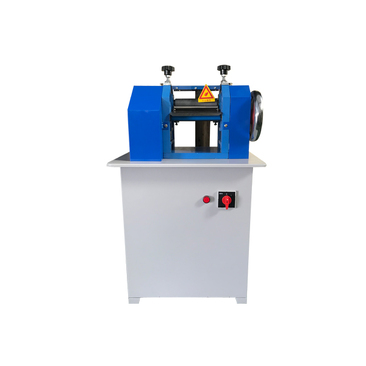Top Manufacturers of Bench Resistance Testers for Reliable Electrical Testing Solutions
Exploring the Landscape of Bench Resistance Tester Manufacturers
In the realm of electrical testing and measurement, bench resistance testers have become indispensable tools for both industrial and research applications. These instruments are designed to measure resistance in various components and circuits, providing vital information for quality control and troubleshooting. With the growing demand for precision testing, numerous manufacturers have emerged in the market, each offering unique features and capabilities. This article delves into the landscape of bench resistance tester manufacturers, examining their contributions, innovations, and competitive advantages.
Understanding Bench Resistance Testers
Before we explore the manufacturers, it's essential to understand what bench resistance testers are. These devices measure the electrical resistance of materials, circuits, and components, allowing engineers and technicians to ensure that products meet specified standards. Bench resistance testers typically offer high accuracy, a range of measurement capabilities, and features such as data logging and connectivity options, which facilitate efficient testing processes.
Key Manufacturers in the Market
1. Fluke Corporation Renowned for its high-quality electronic test tools, Fluke is a prominent player in the testing equipment market. Their bench resistance testers are known for durability and accuracy, offering various models that cater to different testing requirements. Fluke’s commitment to innovation ensures that their products remain at the forefront of technology, integrating features such as Bluetooth connectivity and advanced data analysis software.
2. Keysight Technologies A leader in electronic measurement, Keysight Technologies provides a range of solutions, including bench resistance testers. Their products are notable for their precision and versatility, making them suitable for research and development, manufacturing, and educational institutions. Keysight emphasizes the importance of user-friendly interfaces and sophisticated measurement algorithms, enhancing the user experience and test reliability.
3. Chroma ATE Inc. Based in Taiwan, Chroma ATE specializes in automated test equipment and provides a wide array of bench resistance testers. Their devices are often employed in industries such as electronics, automotive, and renewable energy. Chroma’s focus on automation allows users to streamline testing processes, improving efficiency while maintaining high testing standards.
4. Hioki E.E. Corporation Hioki, a Japanese manufacturer, is recognized for its innovative measuring instruments. Their bench resistance testers are acclaimed for their high accuracy and wide measurement range. Hioki’s products often emphasize environmental considerations, incorporating energy-saving features and sustainable manufacturing practices.
bench resistance tester manufacturers

5. OMEGA Engineering OMEGA is another significant player in the testing equipment market, known for its comprehensive range of measurement and control products. Their bench resistance testers are designed with user convenience in mind, offering features such as intuitive displays and easy operation. OMEGA’s commitment to customer service and support further solidifies its reputation in the industry.
Trends and Innovations
The bench resistance tester market is continually evolving, with manufacturers striving to push the boundaries of technology and user experience. Some notable trends include
- Integration with IoT Many manufacturers are now incorporating Internet of Things (IoT) capabilities into their devices. This allows for remote monitoring and data collection, enhancing the flexibility and usability of bench resistance testers in various applications.
- Advanced Data Analysis With the rise of big data, manufacturers are equipping their resistance testers with sophisticated data analysis tools. This not only aids users in interpreting test results but also improves decision-making processes across various applications.
- Compact and Portable Designs As industries demand more mobility and flexibility, manufacturers are focusing on designing compact and portable bench resistance testers. These devices retain high functionality while catering to the need for space-saving solutions in laboratories and fieldwork.
Conclusion
The landscape of bench resistance tester manufacturers is diverse, with each player bringing unique strengths to the table. As technology advances, the competition among these manufacturers intensifies, driving innovation in features, usability, and accuracy. For professionals in the electrical testing field, understanding the offerings of these manufacturers is crucial to selecting the right tools for their specific needs. With continued advancements in technology and a focus on user-centric designs, the future of bench resistance testers promises to be both exciting and transformative.
-
Why the Conductor Resistance Constant Temperature Measurement Machine Redefines Precision
NewsJun.20,2025
-
Reliable Testing Starts Here: Why the High Insulation Resistance Measuring Instrument Is a Must-Have
NewsJun.20,2025
-
Flexible Cable Flexing Test Equipment: The Precision Standard for Cable Durability and Performance Testing
NewsJun.20,2025
-
Digital Measurement Projector: Precision Visualization for Modern Manufacturing
NewsJun.20,2025
-
Computer Control Electronic Tensile Tester: Precision and Power for the Modern Metal Industry
NewsJun.20,2025
-
Cable Spark Tester: Your Ultimate Insulation Assurance for Wire and Cable Testing
NewsJun.20,2025
 Copyright © 2025 Hebei Fangyuan Instrument & Equipment Co.,Ltd. All Rights Reserved. Sitemap | Privacy Policy
Copyright © 2025 Hebei Fangyuan Instrument & Equipment Co.,Ltd. All Rights Reserved. Sitemap | Privacy Policy
